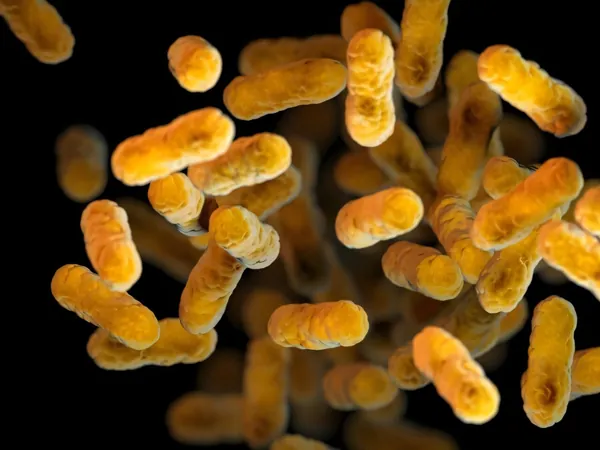
Groundbreaking Study Discovers Antibodies That Could Revolutionize Whooping Cough Vaccines!
2025-04-05
Author: Benjamin
In a dramatic turn of events, whooping cough, also known as pertussis, is re-emerging as a significant health threat. After largely being tamed since the widespread adoption of vaccines in the 1940s, outbreaks have surged in recent years—especially following the immunization setbacks associated with the COVID-19 pandemic. As of 2024, hospitals have been inundated with cases, particularly among infants who are at the highest risk but too young to be vaccinated.
A pioneering study from The University of Texas at Austin presents a beacon of hope in the fight against this dangerous bacterial infection. The researchers have zeroed in on two potent antibodies—hu11E6 and hu1B7—that could transform the effectiveness of current whooping cough vaccines by specifically targeting the disease's critical weaknesses.
Unlocking the Mystery of Pertussis Toxin
The researchers, part of UT’s McKetta Department of Chemical Engineering and Department of Molecular Biosciences, identified how pertussis toxin (PT)—a virulent substance produced by the Bordetella pertussis bacterium—weakens immune responses and brings about the harsh symptoms associated with the disease. In their recently published findings in the Proceedings of the National Academy of Sciences, they unveiled the specific regions of the PT that these antibodies attach to.
The antibody hu11E6 works by blocking the toxin from binding to human cells, while hu1B7 stops the toxin from infiltrating the cells altogether. This precise mapping of antibody interactions provides scientists with a roadmap for the next generation of vaccines.
Prof. Jennifer Maynard, one of the lead researchers, noted the relevance of innovative technologies like mRNA, which were successfully utilized in COVID-19 vaccines. She emphasized how integrating these discoveries could enhance the efficacy and duration of protection offered by whooping cough vaccines.
What This Means for Future Vaccines
The efficacy of current vaccines is limited; although they have significantly reduced incidences of the disease, their protective effects can wane in as little as five years. The recent spikes in whooping cough cases have been alarming, with New York City witnessing a staggering 169% increase in cases since 2023 alone, and Australia experiencing its largest outbreak since vaccines were introduced.
One of the critical steps in combating this trend includes addressing public skepticism about vaccines. The CDC reports that while vaccination rates in U.S. kindergarteners exceed 90%, only a fraction of pregnant women receive the pertussis vaccine. This gap provides fertile ground for outbreaks to flourish, especially among unvaccinated newborns.
A Call for Action
To turn the tide against whooping cough, health experts emphasize proactive measures for mothers, urging them to receive the vaccine during pregnancy to confer protection to their newborns. Moreover, researchers like Annalee W. Nguyen underscore the importance of preventive approaches, stating that it’s simpler and more effective to shield high-risk individuals before they fall ill.
The new study paves the way for developing vaccines that focus on neutralizing epitopes—specific regions on the pathogen targeted by antibodies. Such advancements could not only improve immunity against whooping cough but also boost public confidence in vaccination programs moving forward.
With the clock ticking and whooping cough threatening to regain its foothold, innovative solutions and widespread acceptance of vaccination are more crucial than ever. The fight against this age-old adversary is at a pivotal moment, and the discoveries from UT Austin could be the key to a healthier future. Will the next generation of vaccines succeed in quelling this resurgence? Only time will tell, but the potential is promising!









 Brasil (PT)
Brasil (PT)
 Canada (EN)
Canada (EN)
 Chile (ES)
Chile (ES)
 Česko (CS)
Česko (CS)
 대한민국 (KO)
대한민국 (KO)
 España (ES)
España (ES)
 France (FR)
France (FR)
 Hong Kong (EN)
Hong Kong (EN)
 Italia (IT)
Italia (IT)
 日本 (JA)
日本 (JA)
 Magyarország (HU)
Magyarország (HU)
 Norge (NO)
Norge (NO)
 Polska (PL)
Polska (PL)
 Schweiz (DE)
Schweiz (DE)
 Singapore (EN)
Singapore (EN)
 Sverige (SV)
Sverige (SV)
 Suomi (FI)
Suomi (FI)
 Türkiye (TR)
Türkiye (TR)
 الإمارات العربية المتحدة (AR)
الإمارات العربية المتحدة (AR)